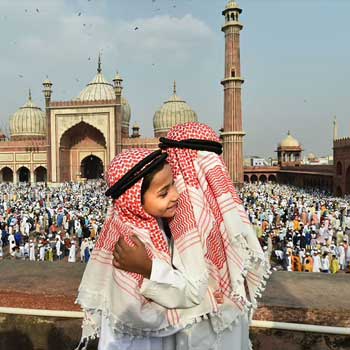The Significance and Celebration of Ramadan: A Month of Fasting, Prayer, and Unity
 Ramzan, a very popular festival among the Islamic People, falls between the months of July and August in Gregorian Calendar. Ramzan is more prominently known among everyone for the strict fasting prayers observed by the Islamic people.
Ramzan, a very popular festival among the Islamic People, falls between the months of July and August in Gregorian Calendar. Ramzan is more prominently known among everyone for the strict fasting prayers observed by the Islamic people.
Ramzan, widely celebrated among Muslims, typically occurs between July and August according to the Gregorian Calendar. It is renowned for the strict fasting and prayers observed by Muslims.
In Islamic tradition, fasting serves as a method of spiritual purification for both the mind and the body. The commencement of Ramadan generally follows the day after the astronomical new moon. This period spans 29 or 30 days, varying based on when the full moon appears, and this variation occurs in different parts of the world. Local mosques declare the start and conclusion of Ramadan. Exemptions from fasting are granted to children, pregnant women, and individuals with chronic illnesses. Moreover, those who fall ill briefly during Ramadan are expected to make up for the lost days later.
The "Night of Power," occurring in the last five days of Ramadan, holds profound significance as it commemorates the night the Quran was revealed to Mohammed. Throughout this night, extended prayers are held, and devotees traditionally offer camels and goats for the pre-dawn meal, suhur.
Muslims celebrate Ramzan with great enthusiasm, and Islamic nations such as Egypt, Afghanistan, and the UAE organize extensive festivities. Interestingly, Indonesia reports approximately seven million pilgrims visiting Mecca during the Ramzan period each year.
Festivals, regardless of religion, aim to reinforce bonds among friends and relatives. Ramzan provides a splendid opportunity for people to engage in charitable activities and demonstrate compassion.
Let’s cherish every moment of our life, as each is unique and irreplaceable.
